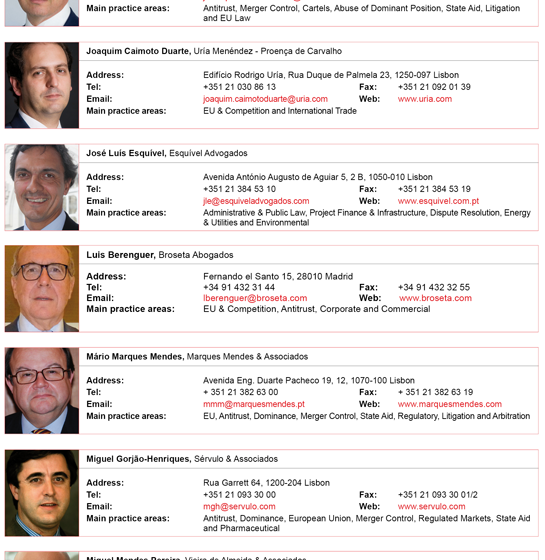Revolutionary new Customs Code to enhance trade
EU commits to enhance business, provide lacking legal certainty and harmonisation and facilitate trading
As part of the EU’s ongoing commitment to protecting businesses and facilitating trade, a new EU Customs Code has been published. Continuing the work of the European Union Customs Union (EUCU) by bringing it in line with the modern business environment, the focus on centralising information and streamlining processes has lawyers across Spain and Portugal hopeful for the future of EU trade.
“Today, everything is about modernisation and ensuring that with all the technology advances we have today, the process of customs clearance is streamlined,” says Lourdes Catrain, Director of the International Trade and Investment Group in Europe at Hogan Lovells. “With the introduction of the Union Customs Code, some of the changes will be quite revolutionary.” However, to use the term ‘modernising’ in the context of this new Code is not entirely correct, given that it is actually one of two different initiatives to update the 1992 Community Customs Code – the first being the 2008 Modernised Customs Code that was recast by the Commission before it was fully applicable – the second, renamed the 2012 Union Customs Code (UCC), having been aligned with the Lisbon Treaty.
A highly successful and low key enterprise, the EUCU has been protecting businesses and facilitating trade flows in and out of the EU for years. But modern times require modern ways of doing business, say lawyers, and traditionally relying on ‘paper’, the Customs Union has become increasingly out of pace with changes in the global business trading environment. The UCC is more of an implemental tool of a customs law, as the initiative sets out the basics of the customs regime and does not change the original policy objectives, or the substance of its provisions in respect of customs procedures and requirements. Instead the focus is on modernising and streamlining the procedures and transactions, by ensuring everything is computerised.
However, the deadline for implementing the IT systems and the paperless environment will not actually happen until the end of 2020, and many of the provisions will be gradually introduced in stages.
This timescale has not been entirely surprising, according to Bruno Santiago, Tax Lawyer at Morais Leitão, Galvão Teles, Soares da Silva. “Given that there are 28 Member States, it will require a significant effort to modernise their customs authorities and have them working at the same place.” Such is the long-term nature of this initiative, lawyers are only able to speculate whether or it will achieve its overall objectives. “As you can imagine we are still in 2013, and we’re talking about something in 2016,” adds Catrain. “It is premature to anticipate how the whole picture will look.”
Added to which, many lawyers are hearing from clients that even if the UCC is supposed to facilitate trade through centralised procedures, the actual cost of acquiring an Authorised Economic Operator (AEO) status is not going to be open to smaller companies. This means it may prove more than simply a transition period while every country aligns their IT processes, and more of a threat to the process being permanently weighed down by dual paper and electronic versions. “However,” says Santiago, “as with many other measures that are being implemented it’s just something businesses will have to deal with”.
Today’s economy is global and interdependent, therefore customs processes should not prevent or conflict with the way the economy is going. “Customs processes should serve the economy,” says Catrain, “they should not put the brake on what is otherwise.”
But despite the doubts as to whether the UCC will achieve its long-term objectives for one of the biggest markets in the world, many lawyers think ultimately it will be business enhancing.
Centralised clearance will not only facilitate business in the EU through quicker systems, but support a more centralised business model from a supply and logistics standpoint. “Presumably if you were able to run a centralised system, you will have greater certainty on all the processes,” says Cecilia Pastor, Corporate Partner and Head of Compliance at Baker & McKenzie, Madrid. “I tend to agree that the UCC could bring greater legal certainty, greater clarity, more simplification, harmonisation and consolidation of practices.”











